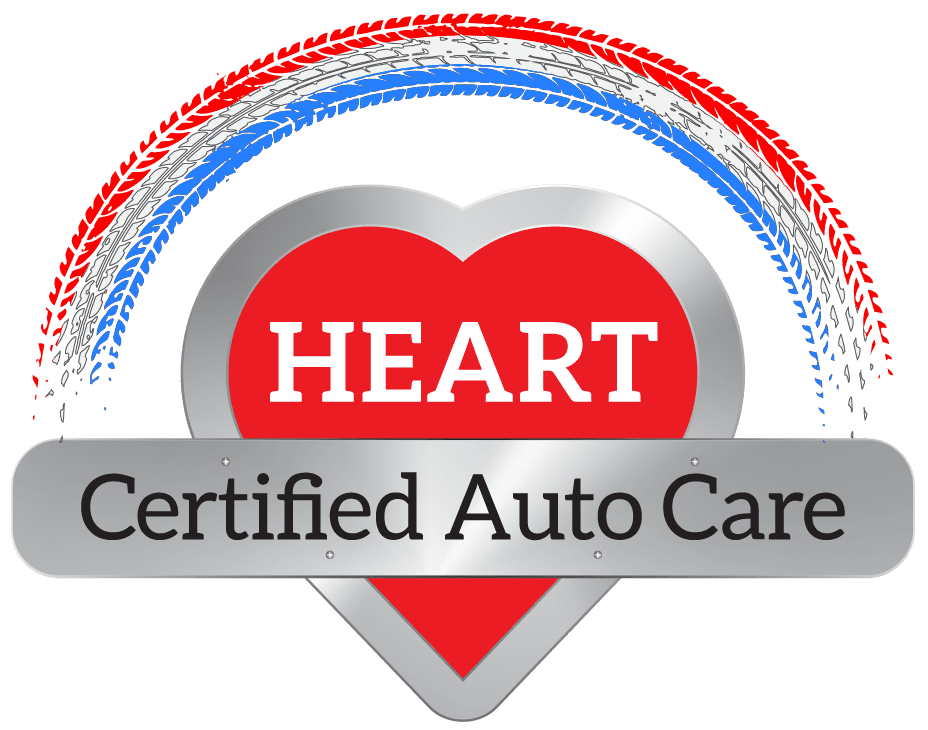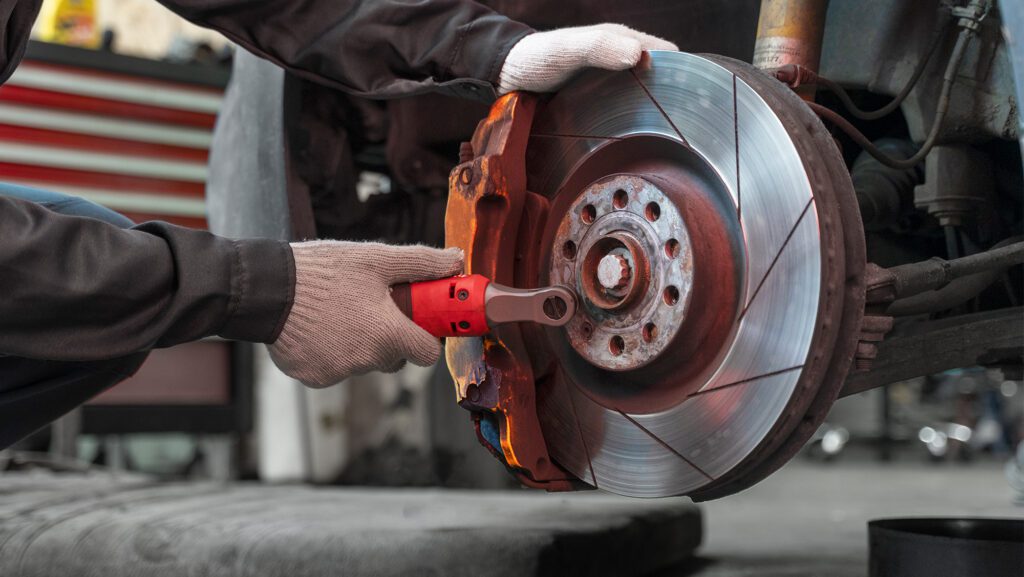Brakes are an indispensable component of every vehicle, significantly contributing to the safety of drivers and passengers while traveling. They allow drivers to decelerate or halt entirely when needed, preventing collisions.
If you have been driving for some time, you may have encountered a squeaking noise while using your brakes and might be curious about its cause. Squeaky brakes are not only a nuisance but also a warning sign of potential problems with your vehicle’s braking system.
In this blog post, we will discuss the ten reasons why your brakes might be squeaking. But before we dive in, let’s briefly discuss how brakes work and why they are so crucial to your vehicle’s safety.
Understanding Your Vehicle's Braking System
When the brake pedal is pressed, it activates the hydraulic system, prompting brake fluid to circulate through the brake lines to the calipers. Upon activation, the calipers compress the brake pads against the rotor, producing friction that slows down or stops the vehicle. The motion energy of the vehicle gets converted into heat energy and dissipates into the air.
It’s crucial for brakes to function properly at all times, as they serve as a vital safety component in every vehicle. Squeaky brakes can be an indication of potential issues with your braking system that require immediate attention. In the following section, we’ll explore each of the ten reasons why your brakes might be squeaking and provide tips on how to diagnose and address each issue.
Exploring the 10 Reasons Behind Squeaky Brakes
By understanding these causes, you can better diagnose and address the issues with your vehicle’s braking system, ensuring optimal performance and safety on the road. So, let’s dive into the ten reasons that may be causing your brakes to squeak.
1. Worn Brake Pads
Brake pads play a vital role in the braking system by applying pressure to the rotor, enabling the vehicle to decelerate or come to a halt. Due to constant contact with the rotor, brake pads gradually wear down, eventually leading to squeaking noises.
Worn brake pads can also be dangerous if not diagnosed and replaced promptly. A good indicator that your brake pads are worn is if the squeaking noise becomes more pronounced when you apply the brakes. Additionally, if you notice that your vehicle is taking longer to come to a complete stop, it’s time to replace your brake pads.
To diagnose and replace worn brake pads, you can inspect them visually through the spokes of your wheels. You should look for indications of wear, such as a thinning or uneven surface. If you’re not familiar with the process, it’s best to have a professional mechanic take a look to ensure that the job is done correctly.
2. Dirty Brake Components
Dirt and debris can accumulate on brake components, causing them to squeak. Over time, this buildup can cause the brake pads to lose their grip on the rotor, which can lead to reduced braking performance and potential safety hazards.
To prevent squeaking caused by dirty brake components, you can clean your brake pads, rotor, and caliper using a brake cleaner spray. This fast and easy procedure can help you evade expensive repairs down the line. Nevertheless, if your brakes continue to squeak after cleaning, it is advisable to consult a professional who can examine your vehicle’s braking system for any hidden problems.
3. Glazed Brake Pads
Brake pads can become “glazed” when they overheat, causing the material to harden and become shiny. Glazed brake pads can cause squeaking and reduced braking performance since they are unable to grip the rotor effectively.
To prevent glazed brake pads, avoid overusing your brakes by driving too aggressively. If you notice that your brakes are squeaking and suspect that the cause is glazed brake pads, you can use fine-grit sandpaper to remove the glaze gently. However, it’s best to have a professional mechanic inspect and replace any damaged brake components to ensure your safety on the road.
4. Loose Brake Components
Loose brake components can cause squeaky brakes and, in extreme cases, may affect your vehicle’s braking performance. Brake components such as shims, caliper bolts, and pads can become loose over time, causing vibrations and noise when brakes are applied.
To identify and fix loose brake components, inspect your brakes visually after removing the wheel. Look for any signs of damage, wear, or looseness in the brake pads and other components. Tighten any loose components and replace any damaged parts if needed. If you’re not confident with the process, have a professional mechanic check your brakes to prevent any further damage to your car.
5. Worn Brake Rotors
Brake rotors are an integral part of your car’s braking mechanism, functioning together with the brake pads to decelerate and bring the vehicle to a halt. However, just like brake pads, brake rotors can also wear out over time and cause squeaky brakes.
Worn brake rotors can cause vibrations and a spongy feeling when applying the brakes. To identify worn rotors, look for uneven or scored surfaces on the rotor disc and measure the rotor thickness. If the rotor is below the manufacturer’s recommended thickness, it’s time to replace the rotor to avoid reduced brake performance and potential safety hazards.
6. Improperly Lubricated Brake Components
Brake components require proper lubrication to function smoothly and quietly. Lack of lubrication can cause brake components to wear out quickly, leading to squeaky brakes.
To properly lubricate your brake components, use a high-temperature, silicone-based lubricant and apply it to the sliding parts of the brake system. Be cautious not to use excessive lubricant, as it can draw in dirt and debris, potentially leading to further harm to your brakes. It is recommended to adhere to your car’s owner’s manual guidelines or seek advice from a skilled mechanic for the correct lubrication process.
7. Corroded Brake Components
Brake components can become corroded due to exposure to harsh weather conditions or long periods of disuse. Corrosion can affect the surface of the brake components, causing them to become rough and uneven, resulting in squeaky brakes.
To avoid corrosion, refrain from leaving your vehicle in wet environments and, when feasible, keep it in a dry location. Consistent cleaning and upkeep of your brakes can also aid in preventing corrosion. If you believe your brakes could be corroded, have a skilled mechanic examine and replace any faulty components.
8. Cold Weather
Cold weather can affect your vehicle’s braking system, causing squeaky brakes. When exposed to cold weather, the brake pads and rotors can contract, reducing their grip, and causing noise when braking.
To prevent squeaky brakes during the cold season, make sure to warm up your vehicle before driving to give your brakes enough time to adjust to the temperature. Additionally, avoid using the parking brake in freezing weather, as it may cause it to freeze and become stuck.\
9. High Humidity
High humidity can also cause brake components to absorb moisture, leading to corrosion and squeaky brakes. Brake components such as the caliper and rotor can also become sticky due to the humidity, leading to reduced braking performance and increased noise.
To prevent squeaky brakes during high humidity, avoid driving through puddles as much as possible. Regular maintenance and cleaning of your brakes can also help to prevent corrosion and other brake-related issues.
10. High-Speed Driving
High-speed driving can cause brakes to overheat, leading to reduced braking performance and squeaky brakes. The friction from high-speed driving can also cause brake pads to wear out quickly.
To prevent squeaky brakes during high-speed driving, you can upgrade your brake components to those designed for high-performance use. It’s also essential to drive at a safe speed, especially when going downhill to avoid overheating your brakes. Regular maintenance and inspection of your brakes can also help prevent potential issues.
Trust HEART Auto Care for Your Brake Diagnosis and Repair Needs
When it comes to diagnosing, repairing, or replacing your brakes, you can always rely on HEART Auto Care. Our team of professional mechanics is committed to providing exceptional service and expertise in handling brake-related issues. With our state-of-the-art tools and knowledge of the latest industry trends, we ensure that your vehicle’s braking system is in top condition, guaranteeing your safety on the road. Don’t let squeaky brakes compromise your driving experience; trust HEART Auto Care to get the job done right. Give us a call or book an appointment online to ensure your vehicle’s safety and optimal performance on the road.
Bottom Line
In summary, there are ten reasons why your brakes may be squeaking, including worn brake pads, dirty brake components, glazed brake pads, loose brake components, worn brake rotors, improperly lubricated brake components, corroded brake components, cold weather, high humidity, and high-speed driving.
It’s essential to keep your brakes in good working condition not only to prevent noise but also to ensure your safety on the road. Regular maintenance and inspection of your vehicle’s braking system are crucial to identifying and addressing any issues before they become more severe.
If you’re experiencing squeaky brakes, don’t wait until it becomes a safety hazard. Take action immediately by having a professional mechanic inspect your vehicle’s braking system. By doing this, you can avoid costly repairs and ensure that your brakes are working correctly.
Remember, your safety on the road is critical, and taking the necessary steps to address any brake-related issues is a small investment compared to the risks associated with failing brakes.







